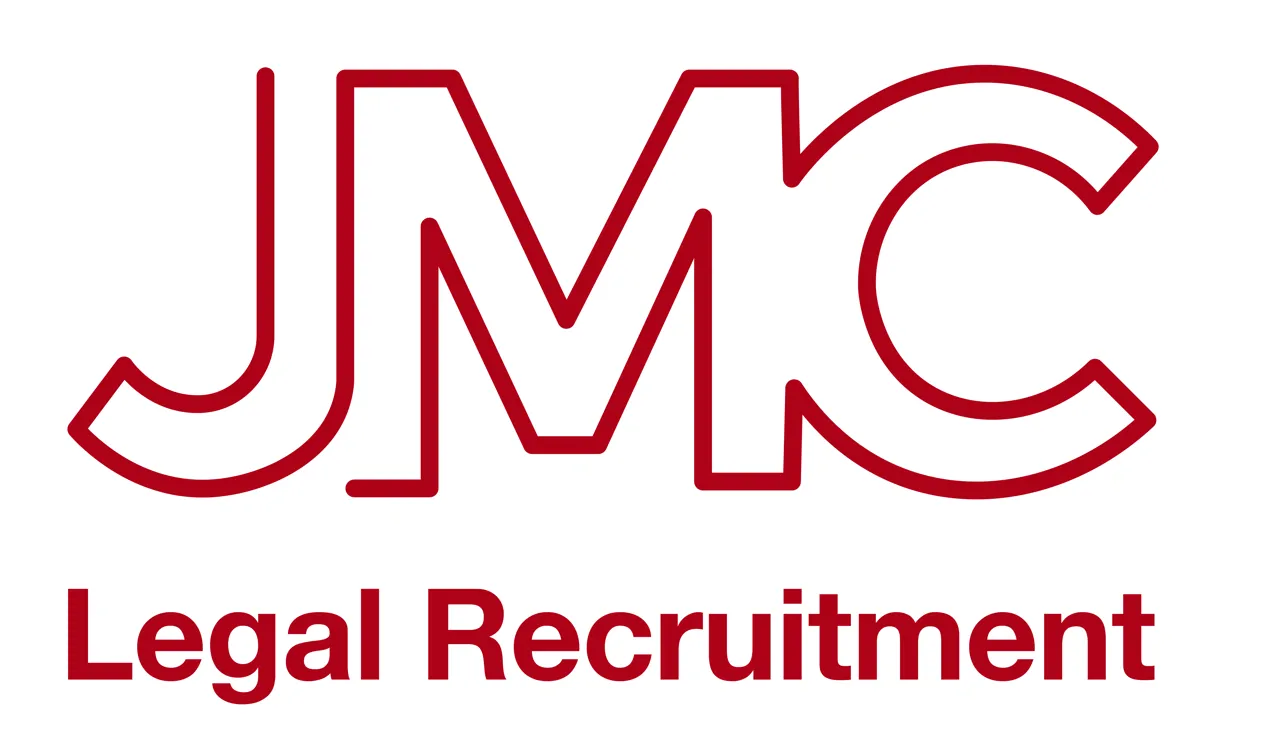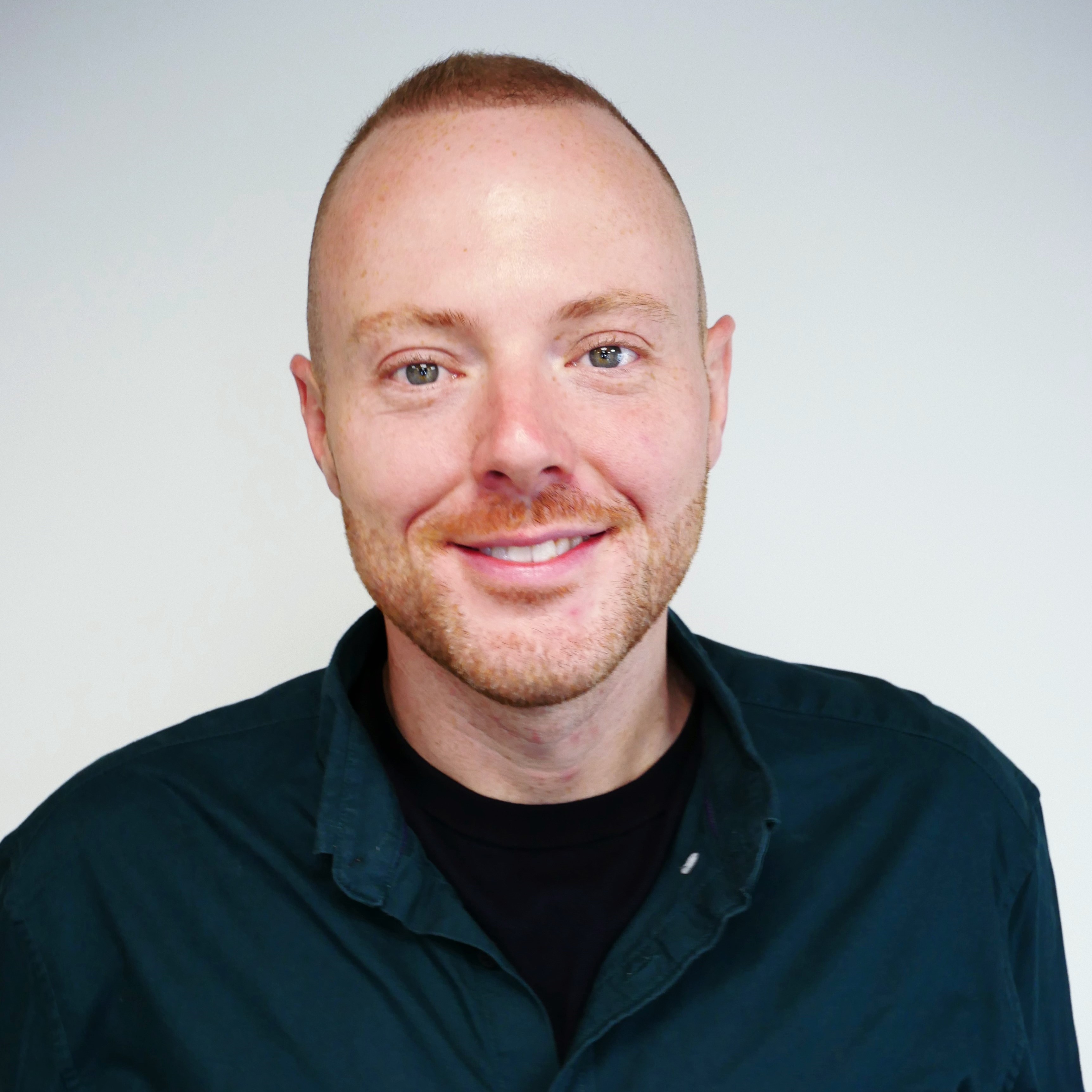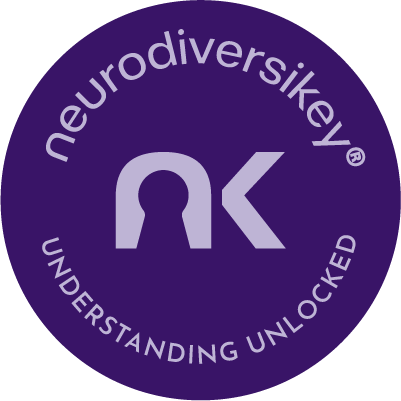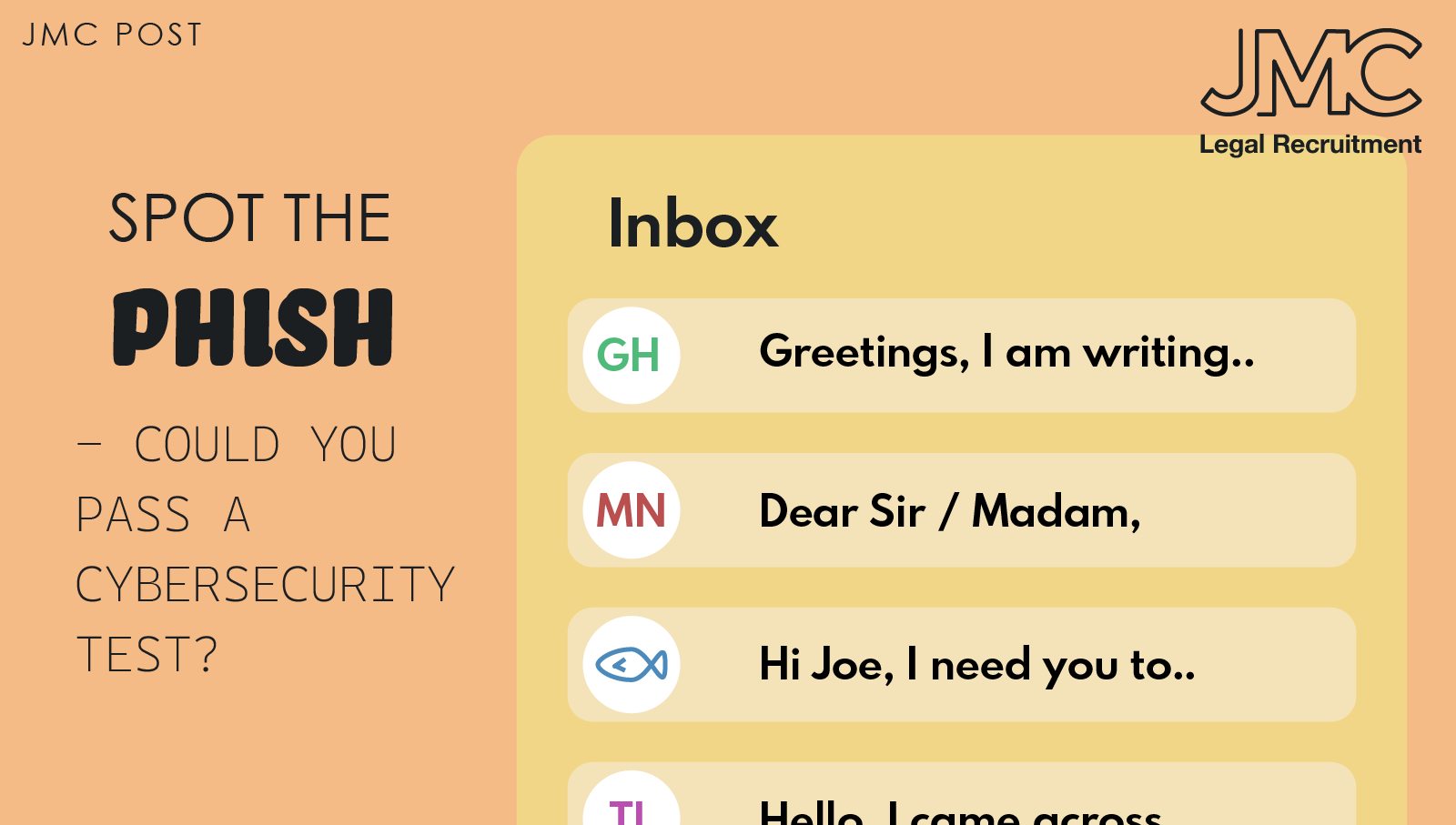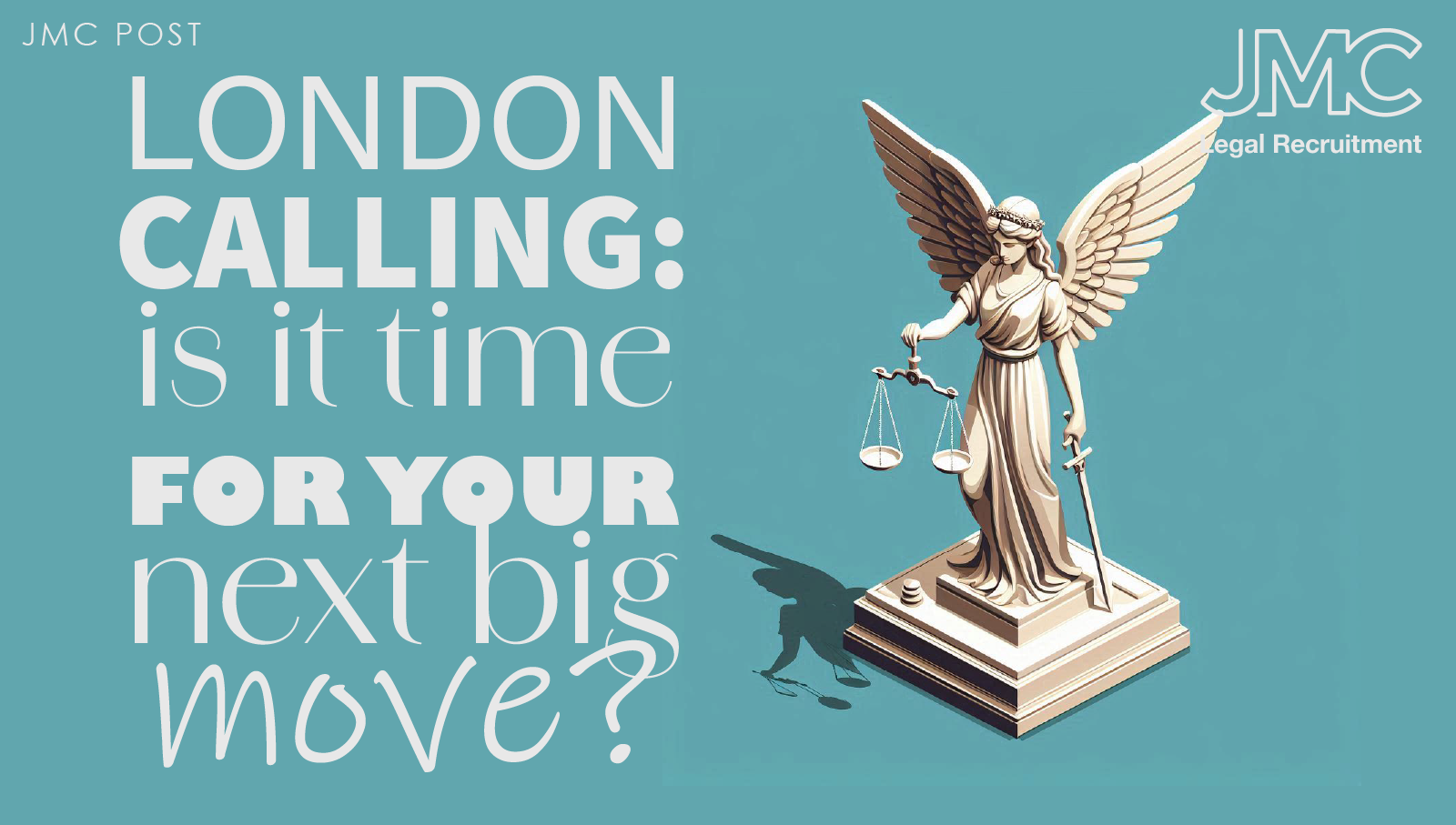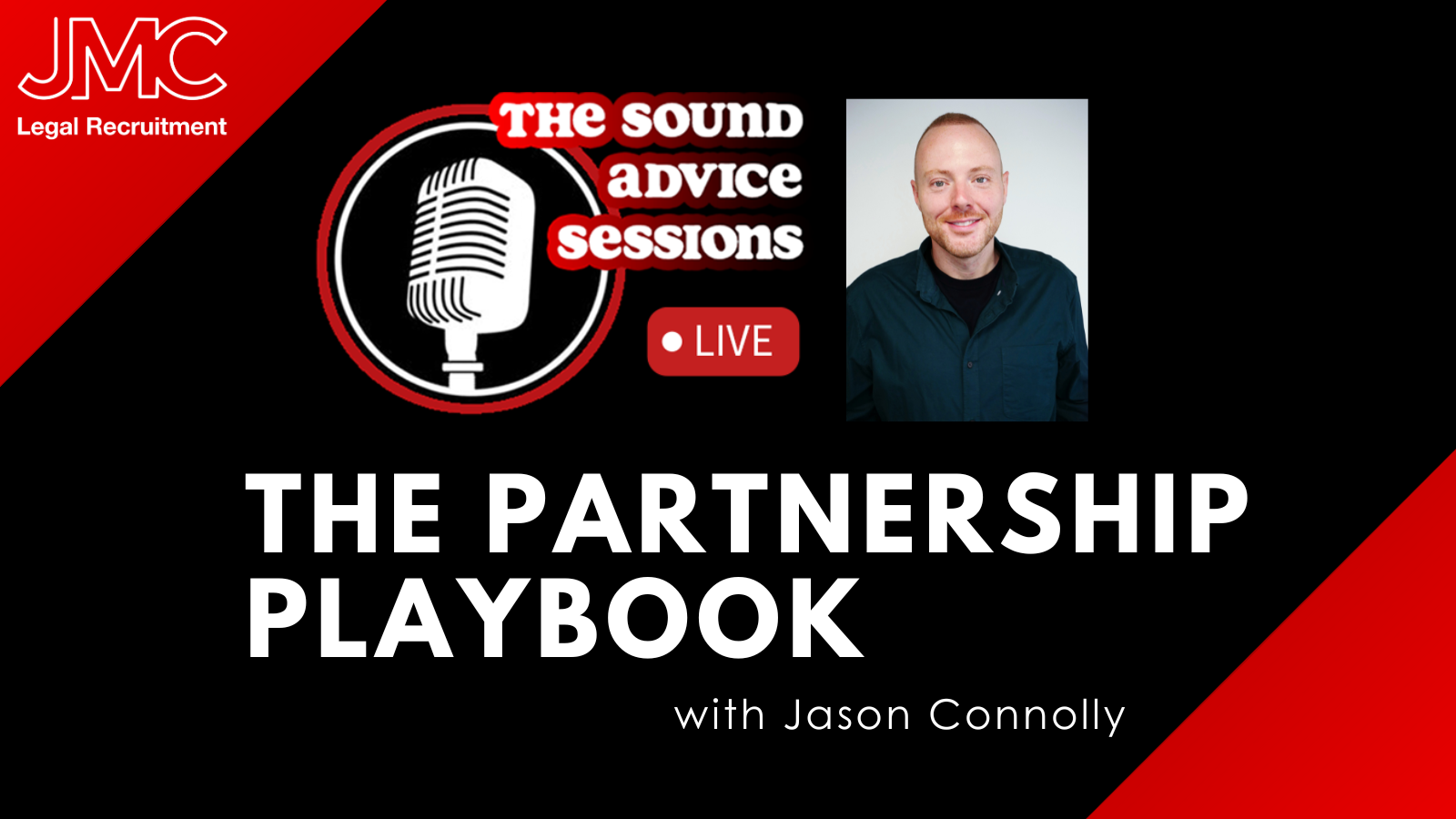
Q&A with Danielle Gleicher-Bates (Co-Founder of Neurodiversikey)
18 Sept, 20245 minutes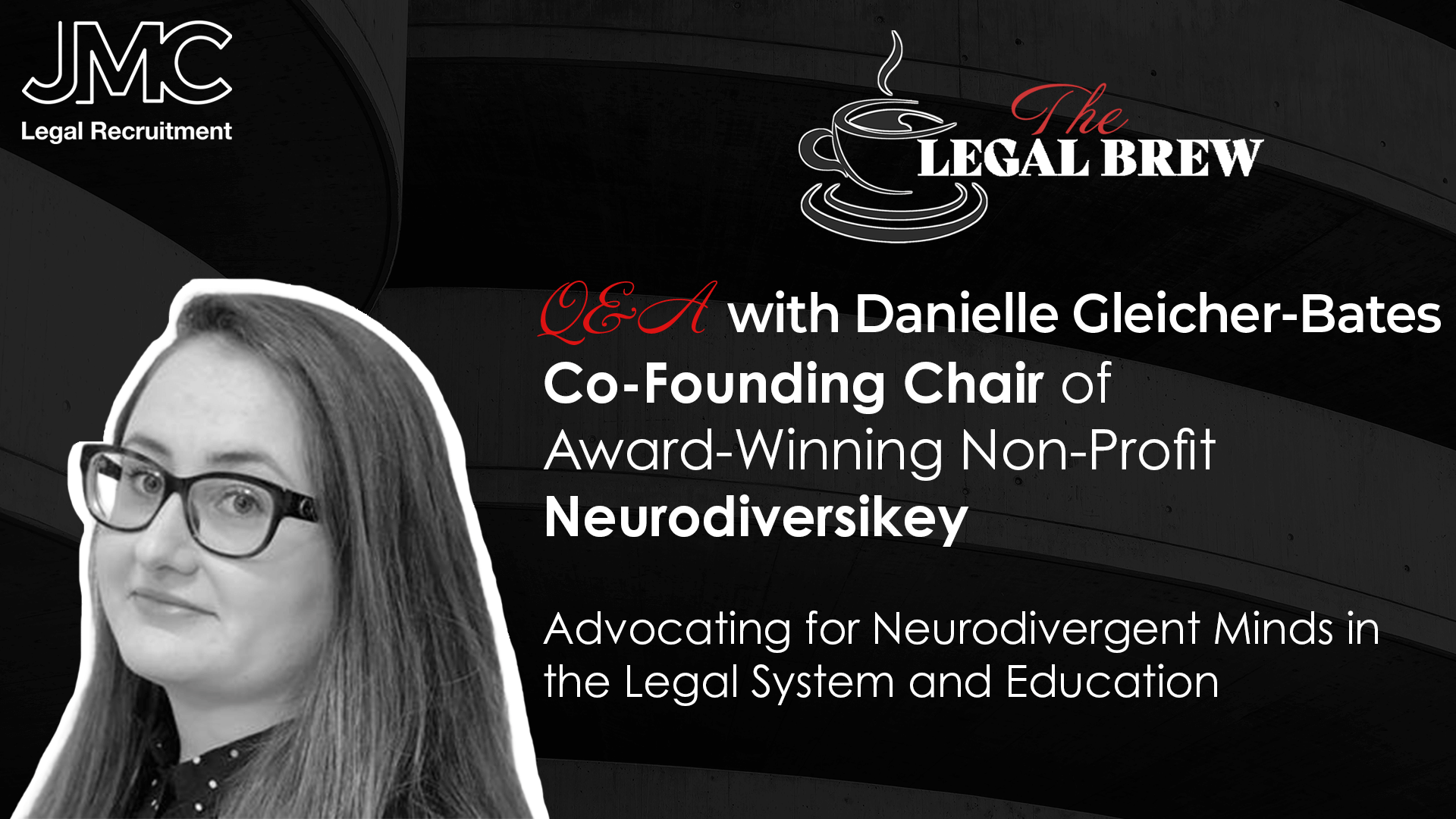
We were privileged to sit down with Danielle Gleicher-Bates, co-founder of the award-winning non-profit Neurodiversikey and DE&I Champion of the Year in a Specialist Role 2024! Danielle is a passionate advocate for neurodivergent individuals and her work aims to reimagine a legal profession and justice system that are truly neuroinclusive.
Firstly, tell us about you and your experiences, and what led you to even start this this organisation.
I graduated back in 2020 from my law degree and earlier in that year, I co-founded Neurodiversity and Law where I was on the executive board until September of last year and so the motivation really behind Neurodiversikey is very similar. I'm multiply neurodivergent late diagnosed in my late twenties. I'm ADHD, autistic, dyslexic, dyspraxic and have a visual processing difference. From my own experiences as well as friends and people I've met along the way, neurodivergent people, we tend to have had some very negative experiences in the context of legal education training and in the sector itself. And so, it was in October last year that I co-founded Neurodiversikey with my colleague Emma Llanwarne and Charlotte Clewes-Boyne.
We felt that it wasn't enough to look at neurodiversity in the legal profession alone, but that we needed to tackle justice system itself, and that they are really inseparable, it's also an access to justice issue in that the profession should be representative of those that it serves.
That's obviously a particularly important issue in, for example, criminal law, where neurodivergent people are overrepresented.
You mentioned that you had a late diagnosis in your late 20’s, what was it that lead to your diagnosis?
I think part of that is that I have masked highly my entire life, and it's not until I started to lose the kind of rigidity and the support mechanisms in, for example, school, and then earlier on in my academic career. As the workload increased, I started to notice that with very, very large volumes of text, I wasn't necessarily struggling to read the entire text, but I would miss parts of it skip lines and things like that.
And then I kind of looked back at my early school life and remembered that that had always been a struggle. I just got coping mechanisms along the way.
It got harder and I started seeing distortions in text which I thought was completely normal until I made a passing comment to my optician who flagged that shouldn't be happening which led to my initial diagnosis with a visual processing disorder and then I was screened for dyslexia which actually picked up that I was dyspraxic and I thought ‘it’s sorted, I can get the support that I need and everything will go smoothly’, but I was still struggling with other things. So, ADHD came next.
I think a lot of us who are late diagnosed ADHD, you grow up thinking ‘you're just lazy and you're not trying hard enough, you can't focus because you just can't be bothered’
And I think that's a message that I grew up with, especially in the school context, and then after that, I was diagnosed autistic because that was actually flagged in my ADHD assessment.
How did your diagnoses affect your law degree? I imagine it must have brought up a mixture of emotions.
I was actually only diagnosed after my law degree, in typical ADHD fashion I forgot to mention, I’m actually a Barcour student as well. It was towards the end of my law degree that the visual processing difference was identified. Yeah, it's a mix of emotions and feelings, there is that relief, it's kind of like
‘Oh, finally, I have the answers I've kind of been looking for! I've always felt that something was different about me, but I couldn't quite put my finger on what.'
So it did answer a lot of questions for me. But then I suppose you have that, brief stage where you think well, what would I have done? Where would I be right now had I had all of this support and knowledge and just understanding about myself back when I was, say, 7 years old where would I be now?
You touched on it before but what continues to drive you? And what is the driving factor about this organisation and what are you hoping to achieve?
When we first set out, we envisaged a legal profession and the justice system which are neuroinclusive in which neurodivergent people are truly understood and supported, and that still very much is our you know our main objective. Obviously, that's a very large kind of long term and wide target. I think now that we've been up and running for almost a year it's more figuring out, okay what are the specific focus is now in achieving that, breaking it down into those chunks. For example, trying to build an evidence base, because apart from the surveys we've just conducted, there isn't any data on neurodiversity in the legal profession or education and training.
You would think there would be at least some data about neurodiversity in law in 2024!
I understand that these things take time but yes it's long overdue. We identified that gap in the data and wanted to address it, because we also want to be able to measure in future, because it's all well and good, the sector, education and training saying that we want to be neuroinclusive but it's very difficult to actually achieve that if you don't know where you are right now, or where you're going, and whether you've actually moved forwards or backwards.
What do you think a neuro diverse organisation looks like in terms of representation and would you like to see happen?
I think mandatory neurodiversity training would be really beneficial and address a lot of the issues that neurodivergent people face. For example, discrimination and fear of disclosure and also the refusal to provide reasonable adjustments. I think that's the real crucial thing, education.
In order to then have a kind of domino effect and have the actual practices and the policies and the adjustments in place that would actually then make the organisation neuroinclusive. I think there's some research that shows that diversity actually does increase productivity, creativity, and results.
I would like to come on to your custody guide, could you tell us about that?
The custody guide came from my colleague and co-founder, Emma. She's a criminal defence paralegal, and she works with a lot of clients who are neurodivergent. The research shows that neurodivergent people are overrepresented throughout the criminal justice system and in particular, ADHD, it's something like an estimated one in four people in the criminal justice system have ADHD. -And there may be newer research which shows that it's higher. We wanted to tackle police custody because you know, that's the first point, really. What the guide really aims to do is to empower ADHD-r’s, whether they're diagnosed or undiagnosed, not just to understand their basic legal rights in police custody, but to actually be able to identify and obtain the appropriate support in respect of their needs, because it's a highly stressful situation.
We hope that the guide, once it’s in custody suites, enables these individuals to actually gain the support that they need, and then have an effect on making sure the process is fair, and actually achieves justice.
What advice would you give to people who might be neurodivergent? People who may be wondering if they are capable of completing a university degree in law?
That's quite a tough one, because I mean, some of it is quite depressing. I think you need to really familiarise yourself with what you're entitled to in terms of reasonable adjustments and the support and you know how your needs can actually be accommodated.
Which, it's sad to be saying in 2024, basically you need to be able to enforce your rights, getting to know yourself and understanding your own needs.
I think part of that is taking a look at your strengths and your achievements, and what you can attribute to your neurodivergent strengths, for example; hyper focus or having a special interest in a special specific area of law. It’s important to be able to draw out those positives because not only is it brutal, in general, pursuing a legal career, but doing it as a neurodivergent person.
It's like getting a double the battering because you're not conforming necessarily to the norms or expectations that have been set in stone for quite some time, because, let's be honest, the law is a slow sector to change.
Click to find out more about Danielle's work at Neurodiversikey®
Have an interesting legal industry insight you'd like to be featured on the Legal Brew? Get in touch at hello@jmc-legal.com to have your story featured.
